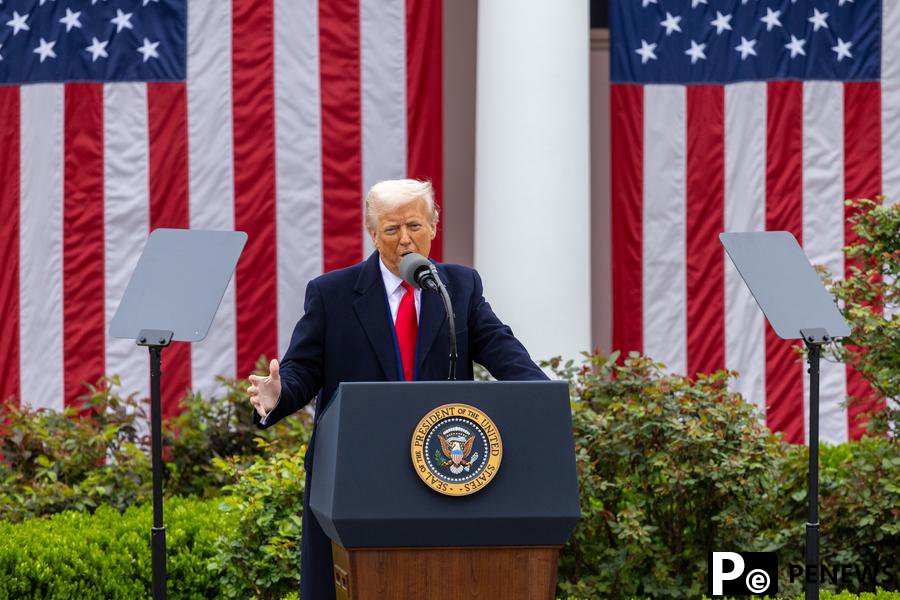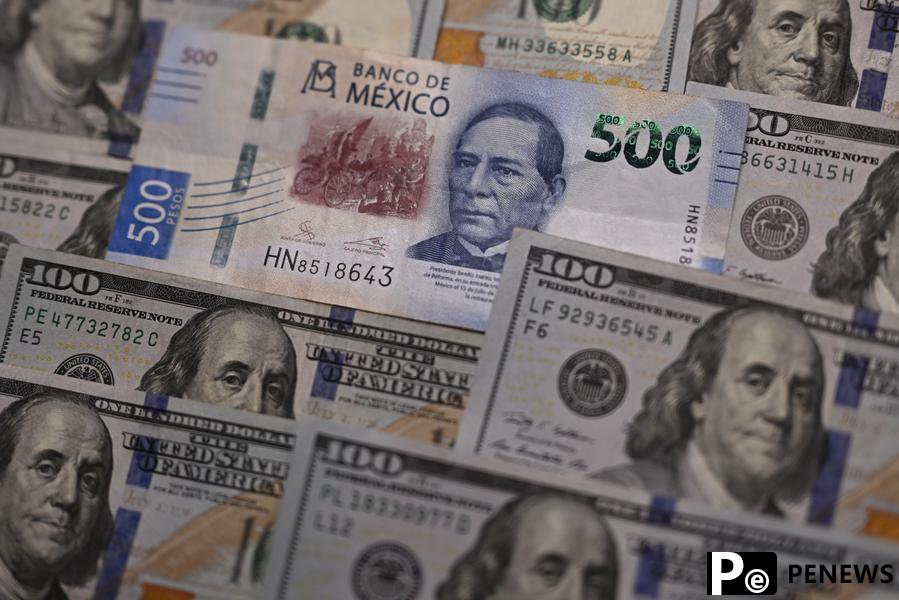Home>>
U.S. "reciprocal tariffs" mark severe setback for global trade(Xinhua) 08:54, April 04, 2025
* While the Trump administration argue that these tariffs are necessary to protect U.S. industries, reshore manufacturing and reduce deficits, the decision has met with sharp criticism from economists, trade experts and foreign governments.
* On Wednesday, S&P 500 futures tumbled 3 percent, suggesting investors expect deep losses when Wall Street opens on Thursday. Other stock markets around the world and treasury yields fell too.
* European Commission President Ursula von der Leyen expressed deep regret on Thursday over the U.S. move, warning that the impact could be devastating.
* Trump's latest move is not merely an economic miscalculation but a desperate attempt to resolve capitalism's internal contradictions through coercive state intervention, said Busani Ngcaweni, a senior research associate at the University of Johannesburg.

U.S. President Donald Trump delivers remarks on "reciprocal tariffs" at the Rose Garden of the White House in Washington, D.C., the United States, on April 2, 2025. (Xinhua/Hu Yousong)
WASHINGTON, April 3 (Xinhua) -- U.S. President Donald Trump announced a new set of levies on Wednesday, imposing a 10 percent baseline tariff on imports from all trading partners and higher rates on certain ones.
Those "reciprocal tariffs" will take effect on April 5 and 9 respectively, a move that could destabilize global markets, harm U.S. consumers, and undermine efforts to revive multilateral trade cooperation.
While the Trump administration argue that these tariffs are necessary to protect U.S. industries, reshore manufacturing and reduce deficits, the decision has met with sharp criticism from economists, trade experts and foreign governments. Many see it as a misguided attempt to use tariffs as a blunt instrument in addressing complex trade imbalances.
SWEEPING TARIFFS
In a decisive move to overhaul U.S. trade policy, Trump announced the tariffs during a speech in the White House Rose Garden. He declared April 2 as "Liberation Day," saying, "This is one of the most important days in American history."
The president held up a chart, showing the United States would charge specific "reciprocal tariffs" on roughly 60 "worst offenders," including a 20 percent duty on imports from the European Union (EU), 25 percent on South Korea, and 24 percent on Japan.

A five-hundred Mexican peso banknote is pictured with one-hundred U.S. dollar bills in Mexico City, Mexico, March 4, 2025. (Xinhua/Li Muzi)
Additionally, a 25 percent tariff has been imposed on all foreign-made automobiles. Trump explained the rationale behind these measures, saying, "In many cases, the friend is worse than the foe in terms of trade." He further said, "We subsidize a lot of countries and keep them going and keep them in business. Why are we doing this?"
According to Trump's logic, these tariffs are designed to counteract perceived unfair trade practices and stimulate domestic manufacturing by making imported goods more expensive. Trump framed the tariffs as a strategy to revive U.S. industry and domestic production, urging foreign governments to "terminate your own tariffs. Drop your barriers."
SELF-DEFEATING MOVE
Economists warn that the tariffs are likely to lead to increased consumer prices, contributing to inflation.
The budget lab at Yale University estimates that the tariffs announced on Wednesday are expected to raise consumer prices by approximately 1.3 percent in the short term, costing the average household an additional 2,100 U.S. dollars. When combined with existing tariffs, that could raise consumer prices by 2.3 percent, leading to a loss of purchasing power of 3,800 dollars per household.
Furthermore, these tariffs are anticipated to dampen U.S. economic growth both in the short and long term.

A customer shops at a Target store in Rosemead, Los Angeles County, California, the United States, on March 4, 2025. (Photo by Zeng Hui/Xinhua)
On Wednesday, S&P 500 futures tumbled 3 percent, suggesting investors expect deep losses when Wall Street opens on Thursday. Other stock markets around the world and treasury yields fell too.
"This wave of protectionism will produce only losers. The primary casualties will be American consumers, who will bear the brunt of these tariffs through rising inflation and a shrinking selection of goods," Hildegard Mueller, president of the German Association of the Automotive Industry, said in a statement.
Furthermore, such measures dampen competitive pressure on U.S. businesses, weakening their drive for innovation and, in turn, their international competitiveness in the long run, Mueller added.
UNIVERSAL BACKLASH
From political leaders to trade associations, the international community has expressed a mix of criticism, concern and caution in response to the U.S. tariffs.
European Commission President Ursula von der Leyen expressed deep regret on Thursday over the U.S. move, warning that the impact could be devastating.
In a statement, von der Leyen said that Trump's announcement of universal tariffs on the whole world, including the EU, is a major blow to the world economy.








